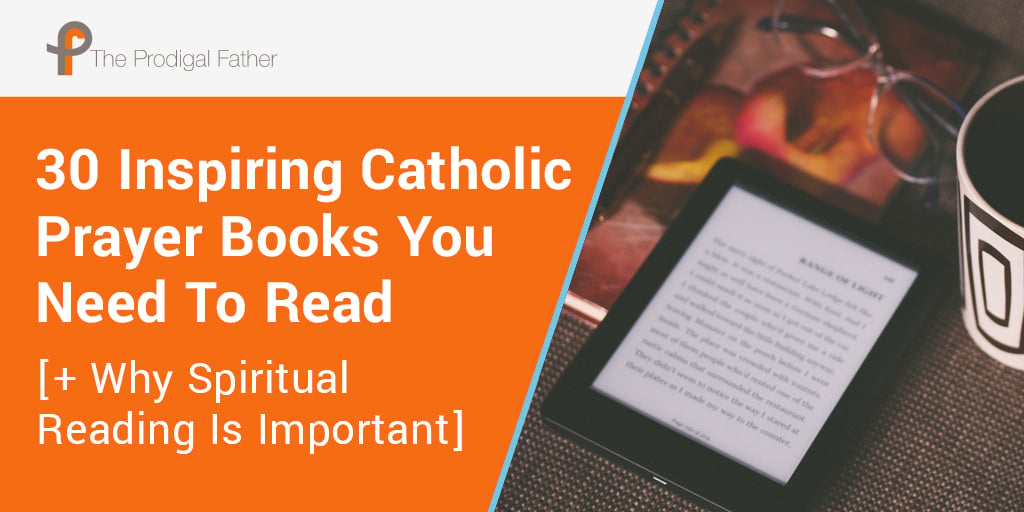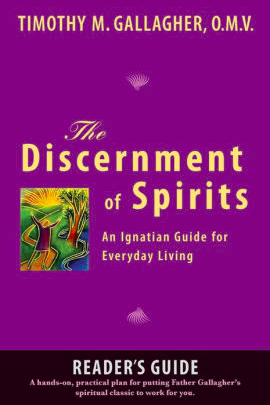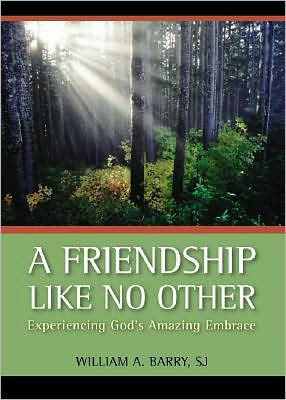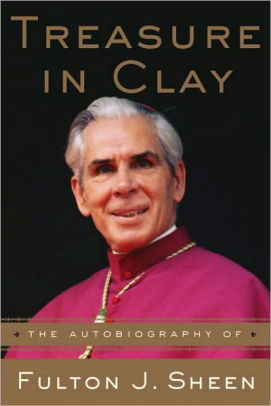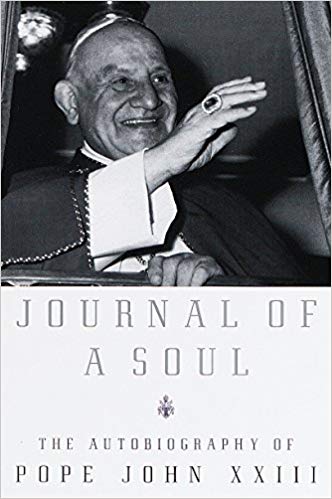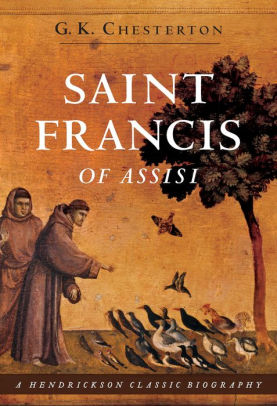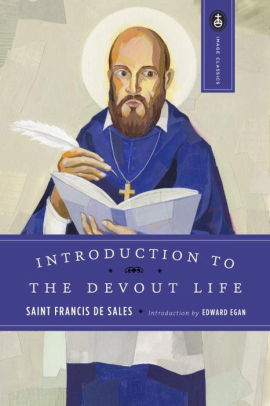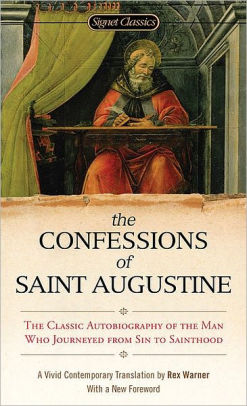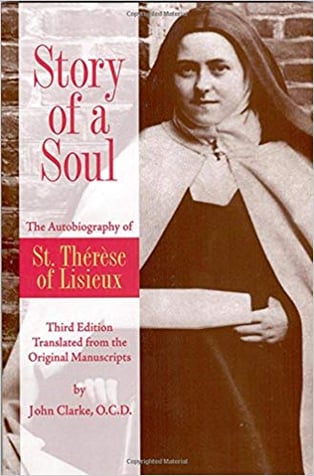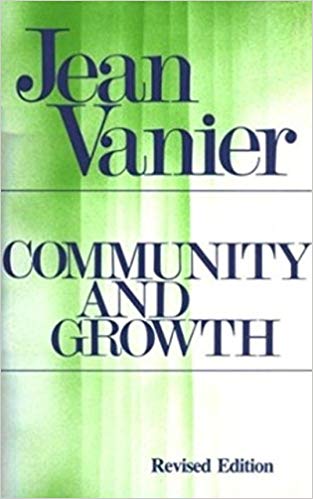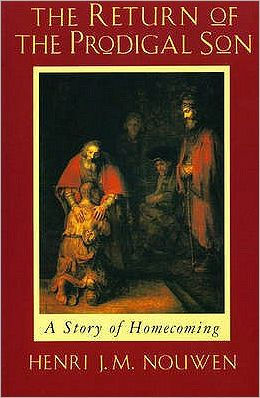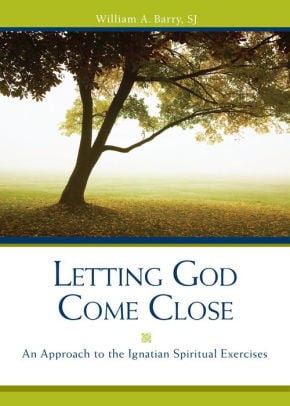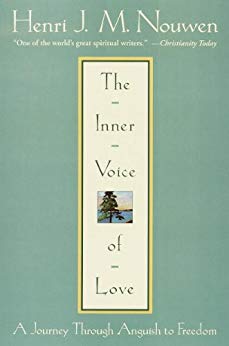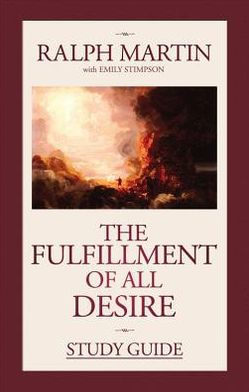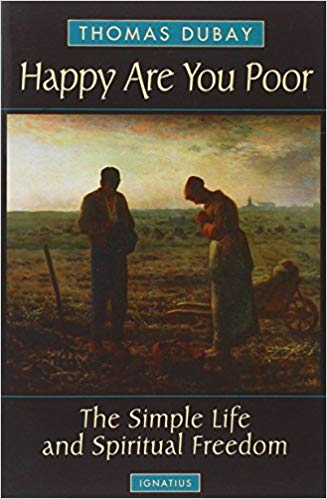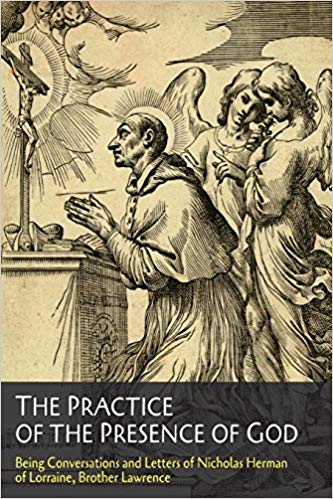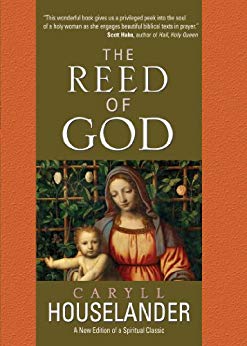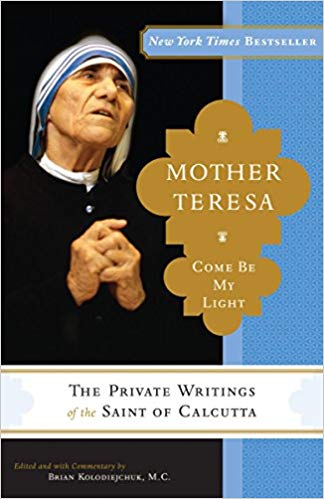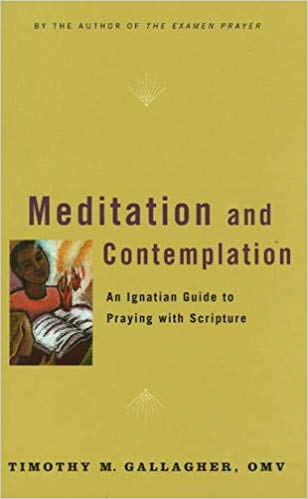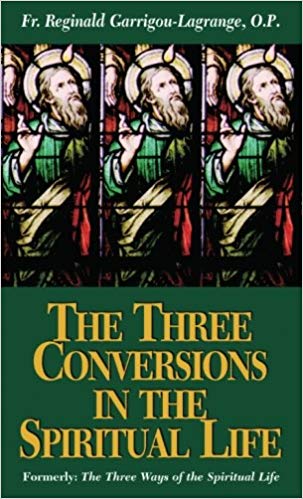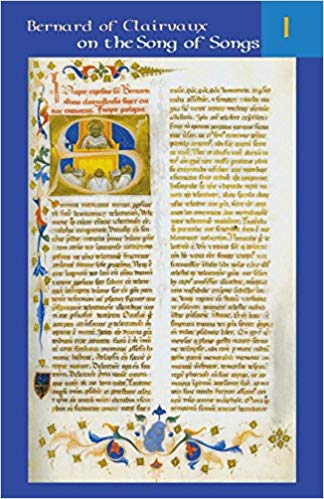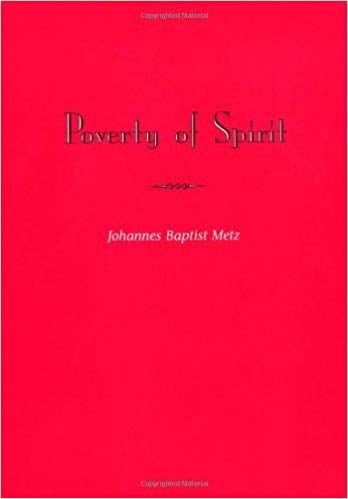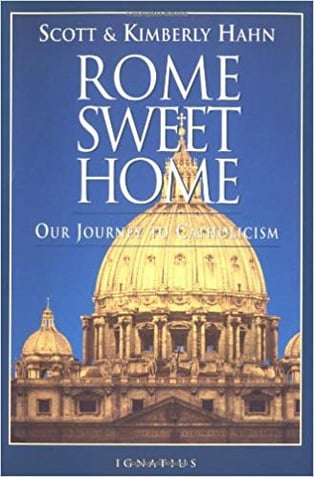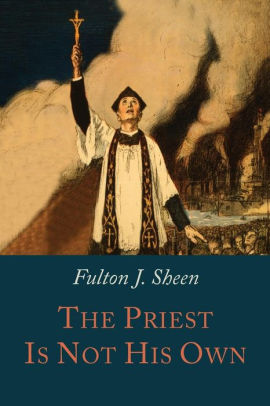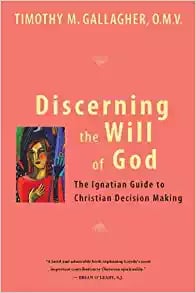Introduction
During one of the annual retreats early on in my seminary formation we were encouraged to make a resolution at the end of our five days of prayer and meditation.
The bishop who lead us on retreat said something like: "You have a limited amount of time in your life and in your so only read the best books!" I took this to heart and made the resolution to spend 15 minutes a day reading "the best" spiritual books.
I always wondered how priests could have bookshelves filled with books but I've discovered over the years that by reading this little bit every day, I have created quite a library for myself.
I am constantly reading spiritual books that keep me inspired. And if I ever hear anyone recommend a book or tell me they loved a book I add it to my list.
I write this with all humility because I never considered myself a reader. I remember freshman year of high school proudly dropping an English class because I thought it had way too much readings. I say this to encourage you. Maybe you think "I'm not a reader." Honestly though, can you read? That is all you need.
To advance our spiritual life, we should utilize all practices, means, and methods in order to do so, right?
Like a runner with good cleats, a construction worker with his or her work helmet or a photographer with an excellent camera and lenses, we as Catholic men and women need to be well-equipped with the right tools in order to truly be followers of Christ.
This being said, one of the greatest tools you can equip yourself with is the habit of daily spiritual reading.
What Is Spiritual Reading?
Spiritual Reading is a practice of reading inspiring and inspired works by the Saints, the Mystics, or even contemporary authors who help us understand how God wants to relate to us. These works can help us make sense of our own prayer lives and encourage us to continue on this great adventure as we walk together on pilgrimage towards heaven. I have found that if I have a good spiritual book on hand it helps me continue to be inspired with the desire to grow closer to God in prayer and in life.
The catechism encourages us to "meditate on what we read" and explains that this will help us "make it our own". When we read the works of the Spiritual Masters and reflect on it with our won life, "another book is opened, the book of life." (Catechism 2706)
Spiritual reading consists of reading and reflecting on some aspect of goodness, beauty, and truth. Focusing our attention on the inspiring works of others can help us stay focused and see the goodness, beauty and truth in our own life.
In previous eras, popular culture itself was imbued with the Christian world view, so even popular books and dramas would reinforce the Christian value system.
But now that is not the case. Instead, our minds are flooded every day by messages (advertisements, films, TV shows, news, music) that directly contradict the Christian world view.
That will have its effect on how we think and what we value.
Because of this ongoing flood of secular ideals, we have to consciously nourish our minds with authentic Christian teaching in order to avoid being disillusioned.
Spiritual reading is both instructive and refreshing. It either informs our minds so that we learn to think and understand more and more in harmony with Revelation, or it refreshes what we already know/have learned by making it shine out more clearly once again.
So often, we are bombarded with the opposite of goodness, beauty and truth. Though I very much appreciate what technology and media can do for us I am also very much aware of what it is like to be overwhelmed as we consume more and more information, tragedies in the news with no redemptive aspect, advertisements that seduce us and play on our desires, social media posts that cause us to be jealous and envious, emails and texts and messaging that overwhelms us, talk shows that deepen division, and pictures and videos that tempt us to lust.
And we know it because when we indulge in media that is not good, truthful and beautiful it leaves us feeling empty and exhausted at the same time. We find ourselves becoming slothful and lethargic and stuffed and over-saturated but still somehow hungry. It becomes a vicious cycle.
St. Paul in his letter the Philippians encourages us: "Finally, brothers, whatever is true, whatever is honorable, whatever is just, whatever is pure, whatever is lovely, whatever is gracious, if there is any excellence and if there is anything worthy of praise, think about these things." (Philippians 4:4)
This is why spiritual reading is such an important discipline. When we read, reflect, and "think about these things" that spiritual masters write about then the "God of peace will be with us." (Philippians 4:9)
Getting Practical
Spiritual reading differs from plain reading not only in the content, but also in the method. You don’t need to spend a lot of time doing spiritual reading; ten or fifteen minutes a day is great. But try to make it quality time. Slow yourself down and enjoy it. This could be the inspiration that transforms your day!
It helps if you know what you are going to read before you sit down to read. Otherwise you might spend your entire time browsing. You've probably done this accidentally with Netflix. Sometimes we waste all of our time browsing when we could be reading something really good.
The list I compiled below will really help get you started. Keep coming back for more as I am always reading something new! I encourage people, and myself to always have the next book ready to read.
I keep a list for "future reading" or just download the kindle version, order the book from Amazon, borrow it from the library*.
If your library doesn't have the eBook or audio-book you can request it as well. Requesting books for the library is great because it helps get more good, true and beautiful spiritual books into the public library systems!
The Five P's of Prayer can be a great way to prayerfully enter into spiritual reading: Prepare (know what you are going to read), Place (go to a quiet place where you won't be distracted), Posture (get comfortable), Presence (Invite God to inspire you), and Passage (read the spiritual book that you have picked out).
I would encourage you to underline, highlight, and write in your book. You may find it even more helpful to write your favorite quotes in a journal* so you can always go back to them for inspiration!
Where To Start:
-
Pick a book that captures your attention. This isn't supposed to be a penance or homework. It should be a book that excites you to read.
-
Set a timer! Seriously just commit to a certain amount of time every day (10 minutes for beginners, 15 minutes for intermediate, 30 for advanced or one hour for experts.)
-
Once you begin reading you will notice references to other spiritual books that may interest you. You may hear a quote from a saint and decide that is the next topic you want to dive into. Or you may learn about a spirituality that attracts you like the Benedictines, Franciscans, or Jesuits. "There are as many and varied methods of meditation as there are spiritual masters." (Catechism 2707)
-
Consider getting a dictionary*. Your going to be learning a lot of new words! If you cannot find some of the unique words in the dictionary then you can always do a word search online. You'll be surprised by the meaning you will find in the words that describe the ineffable experience of God! I also love learning what a word's original meaning is and how it originated. There is a great tool called an Etymology Dictionary* (The meaning of etymology, for example, is "the study of truth").
-
These are some tips that have been helpful for me in spiritual reading: underline, take notes, circle, star, heart, write in the margins. My best directees come back with a notebook full of notes followed by their journal reflections.
Write out the quotes and keep them with you, compile them, write reflections from them. Write a word or phrase next to paragraphs of interest that can be key words for you to go back to.
I have compiled some of my favorite books below. But if you’re not a reader, or if you think you don’t have time, you can also get creative.
There are many good YouTube channels and podcasts that you can watch or listen to. Many of these books are available as audiobooks. You can try Audible free for 30 days by clicking here. (I will link these as I continue creating blog posts for each).
Listening while you drive or exercise to recordings of spiritual talks, homilies, or conferences, audiobooks and good Catholic podcasts can also do be of great benefit. You can listen to The Prodigal Father Podcast on iTunes, Android, or Soundcloud. (Check back soon for a "My Favorite Podcasts blog post: Coming Soon).
The point here is that we all need to be always growing in our spiritual life, because we are either growing or dying. Spiritual Reading will help you grow!
Spiritual Readings' Roots
Scripture is inspired by God and that makes it the premier Spiritual Reading. St. Teresa of Avila, towards the end of life could not find fulfillment in any other books but scripture. For many of us Scripture can be intimidating and even hard to understand. If it's like that for you consider listening to my witness "Learning to Love Scripture".
The scriptural basis of spiritual reading is St. Paul's advice to Timothy whom he appointed bishop. "Until I arrive, attend to the reading,* exhortation, and teaching." The reading is first and foremost the proclamation of the Word at Mass but notice there is also "exhortation and teaching."
Exhortation means to to rouse, stir up or excite. Spiritual Reading is not meant to be boring! I have found it to be consistently inspiring. If it isn't inspiring, then you just haven't found the right book for you!
St. Alphonsus Liguori* (Doctor of the Church and Patron Saint of Moral Theologians and Confessors) "exhorts" that to grow in the spiritual life, spiritual reading is just as useful as our time in prayer.
"We cannot always have access to a spiritual Father for counsel in our actions, and particularly in our doubts; but reading will abundantly supply his place by giving us lights and directions to escape the illusions of the devil and our own self-love, and at the same to to submit to the divine will."
Hence St. Athanasius* used to say that we find no one devoted to the service of the Lord that did not practice spiritual reading. Hence all the founders of religious orders have strongly recommended this holy exercise to their religious.
St. Benedict*, among the rest, commanded that each monk should every day make a spiritual reading. But before all, the Apostle prescribed spiritual reading to Timothy. Attend unto reading. Mark the word Attend, which signifies that, although Timothy, as being bishop, was greatly occupied with the care of his flock, still the Apostle wished him to apply to the reading of holy books, not in a passing way and for a short time, but regularly and for a considerable time."
"St. Jerome* wisely said in a letter to another disciple: 'What need have you of seeking for a little gold in the midst of so much mire,' when you can read pious books in which you may find all the gold without any mire."
He goes on to describe how reading "bad books" fills our mind with "bad ideas" which play on our temptations and can draw us away from God, but reading good spiritual books "fills the soul with holy thoughts and good desires" which can lead us closer to God. (Chapter XVIII Spiritual Reading)
St Alphonsus Liguori* goes on to explain that when we read holy books we receive many "lights and divine calls". Here are some of the saints that he quotes:
"When we pray we speak to God; but when we read, God speaks to us." -St. Jerome* He also said: “Let the sacred books be always in your hands.”
“We address him when we pray; we hear him when we read.” -St. Ambrose of Milan*
"Good books are... letters of love that the Lord sends us; In them he warns us of our dangers, teaches us the way to salvation, animates us to suffer adversity, enlightens us, and inflames us with divine love, [and we] should often read these letters of paradise." -St. Augustine*
Saint Alphonsus* continues on pleading with us to take the time for Spiritual Reading: "How many saints have, by reading a spiritual book, been induced to forsake the world and to give themselves to God!
It is known to all that St. Augustine, when miserably chained by his passions and vices, was, by reading one of the epistles of St. Paul, enlightened with divine light, went forth from his darkness and began to lead a life of holiness.
Thus also St. Ignatius*, while a soldier, by reading a volume of the lives of the saints which he accidentally took up, in order to get rid of the tediousness of the bed to which he was confined by sickness, was led to begin a life of sanctity, and became the Father and Founder of the Society of Jesus-and Order which has done so much for the Church."
The list goes on and on... you too could become a Saint inspired by Spiritual Reading!
Which books are the best to start with? He encourages (and so do I) to begin with the ones that most excite you!
You may want to begin reading The Live's of the Saints* until you find a saint that really inspires you.
Spiritual reading can have a huge effect on our lives.
St. Bernard of Clairvaux* once said that “spiritual reading and prayer are the arms by which hell is conquered and paradise won.”
St. Josemaría Escrivá* says that Spiritual Reading can be what helps set us on fire and “builds up a store of fuel. — It looks like a lifeless heap, but I often find that my memory, of its own accord, will draw from it material which fills my prayer with life and inflames my thanksgiving after Communion.” (The Way 117)
Spiritual reading provides access to spiritual advice from masters of spirituality, says St. Alphonsus Liguori* continues on encouraging us that in Spiritual Reading we have access to the wisdom and spiritual guidance of the greatest masters and Saints of the spiritual life.
St. Pius X* uses the analogy of spiritual reading as being with a good and wise friend: "Everyone knows the great influence that is exerted by the voice of a friend who gives candid advice, assists by his counsel, corrects, encourages and leads one away from error.
Blessed is the man who has found a true friend; he that has found him has found a treasure. We should, then, count pious books among our true friends.
They solemnly remind us of our duties and of the prescriptions of legitimate discipline; they arouse the heavenly voices that were stifled in our souls; they rid our resolutions of listlessness; they disturb our deceitful complacency; they show the true nature of less worthy affections to which we have sought to close our eyes; they bring to light the many dangers which beset the path of the imprudent.
They render all these services with such kindly discretion that they prove themselves to be not only our friends, but the very best of friends. They are always at hand, constantly beside us to assist us in the needs of our souls; their voice is never harsh, their advice is never self-seeking, their words are never timid or deceitful.
There are many striking examples of the salutary effects of the reading of pious books. Outstanding is the case of Augustine whose great services to the Church had their origin in such reading: "Take, read; take, read; I took (the epistles of Paul the Apostle), I opened, I read in silence; it was as though the darkness of all my doubting was driven away by the light of peace which had entered my soul." (Haerent Animo)
Saint Alphonsus* actually says that all founders of religious orders insist on spiritual reading. However, spiritual reading is not just for those who are religious. We can all benefit from this wonderful tradition.
Some examples of founders are:
- St. Augustine of Hippo*, considered one of the greatest Fathers of the Church, converted to the Catholic Church upon hearing a boy tell him” “Take, read; take, read.” He recounted that “I took (the epistles of Paul the Apostle), I opened, I read in silence; it was as though the darkness of all my doubting was driven away by the light of peace which had entered my soul.”
- St. Ignatius of Loyola*, founder of what is considered as the largest religious order in Catholicism, decided to live a saintly life, after reading a volume of the lives of the saints which he accidentally took up while he was in a hospital bed.
- St. Edith Stein*, (now Patron Saint of Europe), once read the autobiography of converted to Catholicism after reading the autobiography of St. Teresa of Avila* and then converted to Catholicism. One night on holiday she picked it up and read all through the night: “When I had finished the book, I said to myself: This is the truth.” The very next day she would be her very own copy of a Missal and as well as the Catechism of the Catholic Church*.
- Thomas Merton*, a modern and prolific spiritual writer, had a similar experience after reading "The Elements of Christian Philosophy" by Étienne Gilson*, He decided to study Catholicism and later became the famous Trappist Monk. He died in 1968 but his works are still being compiled and edited.
Why is Spiritual Reading important?
We live in a noisy world where we're constantly being fed news, advertisements, world problems and much more. You know the maxim "garbage in, garbage out?" If we are filling our minds with garbage all of the time it is going to have a negative affect on us. However, if we are constantly spiritual reading and thinking about "good things" our days can become very holy and wonderful.
St. Paul describes it this way: "whatever is true, whatever is honorable, whatever is just, whatever is pure, whatever is lovely, whatever is gracious, if there is any excellence and if there is anything worthy of praise, think about these things. Keep on doing what you have learned and received and heard and seen in me. Then the God of peace will be with you." (Philippians 4:8-9)
There are many blessings you can benefit from spiritual reading. Check out these 10 examples by Catholic Exchange...
-
Conversion of the soul to God
-
Learning
-
Mind Transformation
-
Joy (from discovering the Truth)
-
Clarity and a sense of purpose
-
Growth in your prayer life
-
Charity towards others
-
Sense of peace
-
Combating mental laziness
-
Defense of our our Faith
We have a wonderful tradition with endless writings of people who have walked this journey before us. They also desire to be our companions on the journey of life. We believe in the communion of saints!
Now, on to the prayer books I recommend...
Fr. Michael's Favorite Prayer Books
P.S. These books are in no particular order, they're all great!
1. "The Discernment of Spirits" - Timothy M Gallagher, O.M.V.
2. "A Friendship Like No Other" - William A Barry, SJ
3. "Treasure In Clay" - Fulton J. Sheen
4. "The Autobiography of St. Teresa of Avila (1st or 2nd Edition)" - Kieran Kavanaugh
5. "Journal of a Soul" - Pope John XXIII
6. "St Francis of Assisi" - G.K. Chesteron
7. "Bernard of Clairvaux" - M. Basil Pennington
8. "Introduction to the Devout Life" - John K Ryan
9. "The Confessions of St Augustine" - Rex Warner
10. "Story of a Soul" - John Clarke, O.C.D.
11. "Community And Growth" - Jean Vanier
12. "The Return of the Prodigal Son" - Henri J.M. Nouwen
13. "Letting God Come Close" - William A Barry, SJ
14. "Selected Works" - Bernard of Clairvaux
15. "The Inner Voice of Love" - Henri J.M. Nouwen
16. "The Fulfillment of all Desire" - Ralph Martin
17. "Happy Are You Poor" - Thomas Dubay
18. "The Practice of the Presence of God" - Brother Lawrence
19. "The Reed of God" - Caryll Houselander
20. "Come Be My Light: The Private Writings of the Saint of Calcutta" - Mother Teresa
21. "Meditation and Contemplation" - Timothy M Gallagher, O.M.V.
22. "The Three Conversions in Spiritual Life" - Fr. Reginald Garrigou-Lagrange
23. "Sermons On the Song of Songs" - Bernard of Clairvaux
24. "Poverty of Spirit" - Johannes Baptist Metz
25. "Rome Sweet Home" - Scott and Kimberly Hahn
26. "Abandonment to Divine Providence" - Jean-Pierre De Caussade
27. "The Priest is Not His Own" - Fulton J. Sheen
28. "To Know Christ Jesus" - Frank Sheed
29. "Discerning the Will of God" - Timothy M Gallagher, O.M.V.
30 ."The Impact of God: Soundings from St. John of the Cross" - Iain Matthew
Conclusion
...And that's a wrap on my top 30 favorite prayer books, what did you think?
Are there any that stand out to you that you want to read first? Have one you'd like to recommend to me? Leave a comment and let me know!
I hope you can take the time today to set aside 10-15 minutes to devote to some spiritual reading for yourself so you can deepen your faith that much more!
Mother Teresa once said: "The greatest poverty in the west is a spiritual poverty." Spiritual Reading is a great way to overcome our own spiritual poverty. If you would like to help us address this poverty please consider supporting The Prodigal Father.
*Disclaimer: Sometimes our blog posts contain affiliate links for products we love and want to recommend to my subscribers. The Prodigal Father Productions earns a small commission on these links, at no cost to you. We will always be sure to distinguish these affiliate links with an asterisk for your transparency.

